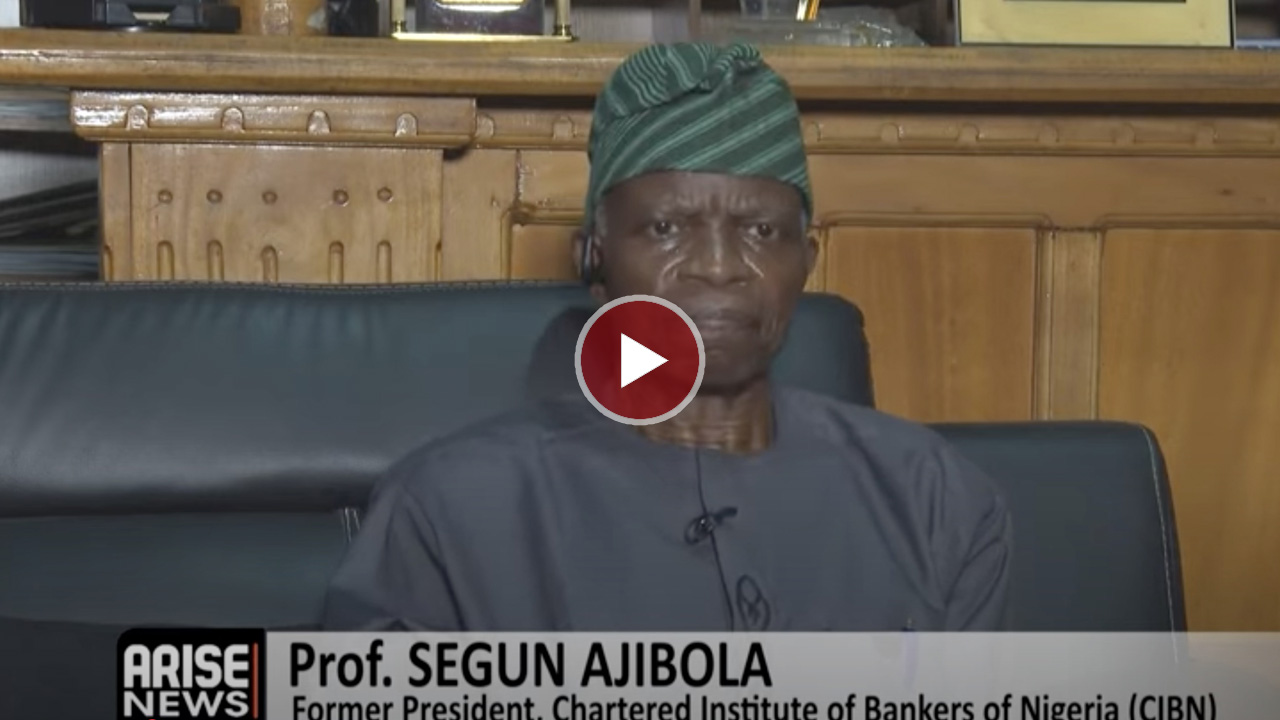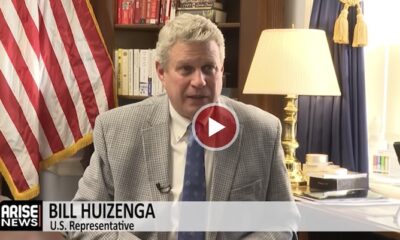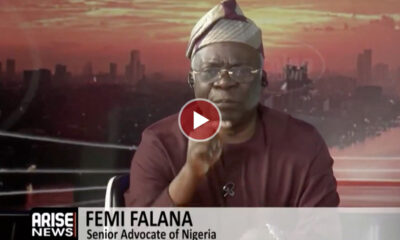Business
Segun Ajibola Warns Smaller Banks of Risks in CBN’s Recapitalisation

Prof. Segun Ajibola, former President of the Chartered Institute of Bankers of Nigeria (CIBN), has raised concerns regarding the Central Bank of Nigeria’s (CBN) ongoing recapitalisation initiative. He warned that smaller banks may be coerced into “unholy alliances” reminiscent of the banking consolidation crisis in 2004. Ajibola expressed these sentiments during an interview with ARISE NEWS, underscoring the potential risks for banks that fail to meet the new capital requirements by the approaching deadline of March 31, 2024.
The CBN’s recapitalisation policy mandates that commercial banks with international authorisation must raise a minimum capital base of ₦500 billion. Those with national authorisation are required to reach ₦200 billion, while regional commercial and merchant banks need to raise ₦50 billion. Non-interest banks face capital requirements ranging from ₦10 billion to ₦20 billion, depending on their licensing category. Currently, only 14 out of 42 banks have complied with these new stipulations, leaving the remaining 28 banks struggling to secure the necessary funds.
Ajibola acknowledged the necessity of the recapitalisation effort, stating that the capital levels of many banks were inadequate to support the transaction volumes in Nigeria’s growing economy. He described the initiative as a “welcome decision” that could enhance the banking sector’s ability to manage increased economic activity.
Nevertheless, he cautioned about the impending deadline and the critical situation facing banks that might be unable to raise sufficient capital. “The most fundamental issue now is between now and 31st March, what can the other banks do?” Ajibola queried. He stressed the importance of risk management strategies for those banks that may not meet the new thresholds.
Reflecting on past experiences, Ajibola noted, “In 2004, some shareholders lost their investments completely because they could not form alliances with other banks.” He urged the CBN to consider proactive measures to alleviate the risks of forced mergers, which could lead to detrimental outcomes.
To mitigate these potential pitfalls, Ajibola suggested that the CBN might grant extensions for banks that demonstrate viable plans to meet the requirements. He proposed that the regulator could attract corporate investors to assist struggling banks, thereby preventing hasty consolidations that could compromise the integrity of the banking system.
Issuing a stark warning, he reiterated the dangers of forced alliances that do not add value. “In 2004, these alliances did not bring anything good to the banking industry,” he stated. Ajibola concluded by emphasizing the need for thoughtful approaches to avoid repeating the mistakes of the past, urging all stakeholders to engage in strategic planning as the deadline approaches.
As Nigeria navigates its evolving economic landscape, the outcome of this recapitalisation exercise will be crucial for the stability and growth of its banking sector.
-

 Entertainment3 months ago
Entertainment3 months agoAnn Ming Reflects on ITV’s ‘I Fought the Law’ Drama
-

 Entertainment4 months ago
Entertainment4 months agoKate Garraway Sells £2 Million Home Amid Financial Struggles
-

 Health3 months ago
Health3 months agoKatie Price Faces New Health Concerns After Cancer Symptoms Resurface
-

 Entertainment3 months ago
Entertainment3 months agoCoronation Street’s Carl Webster Faces Trouble with New Affairs
-

 Entertainment3 months ago
Entertainment3 months agoWhere is Tinder Swindler Simon Leviev? Latest Updates Revealed
-

 Entertainment4 months ago
Entertainment4 months agoMarkiplier Addresses AI Controversy During Livestream Response
-

 Science1 month ago
Science1 month agoBrian Cox Addresses Claims of Alien Probe in 3I/ATLAS Discovery
-

 World2 weeks ago
World2 weeks agoBailey Announces Heartbreaking Split from Rebecca After Reunion
-

 Health4 months ago
Health4 months agoCarol Vorderman Reflects on Health Scare and Family Support
-

 Entertainment4 months ago
Entertainment4 months agoKim Cattrall Posts Cryptic Message After HBO’s Sequel Cancellation
-

 Entertainment3 months ago
Entertainment3 months agoOlivia Attwood Opens Up About Fallout with Former Best Friend
-

 Entertainment2 weeks ago
Entertainment2 weeks agoCoronation Street Fans React as Todd Faces Heartbreaking Choice





















